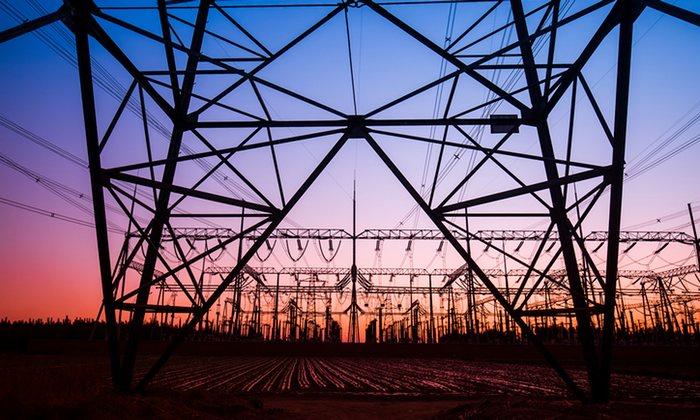As Seen on The Guardian: Energy Day Comes as Major Companies Lead the Fight Against Climate Change

As Seen on The Guardian: Energy Day Comes as Major Companies Lead the Fight Aga…
When the gavel came down on the historic Paris Agreement for climate action on 12 December 2015, the international community delivered a statement of intent for a different and better future. One year on – after months of quiet diplomacy, business calls for action and civil society efforts – the agreement has been ratified, and the statement of intent is now set to drive government, business and investment decisions for decades.
With the fingerprint of climate change ever more present, these decisions are pressing. Governments at all levels need to set or raise the ambition of long-term supportive policies, such as carbon pricing. These policies will unlock trillions of dollars of much-needed low carbon investment by incentivizing business action, helping to deliver prosperous, net-zero emission economies.
Leading businesses are already showing what’s possible. More than ever are committed to leadership on climate issues. Some 470 businesses and investors with more than $11tn in market capitalization are taking action through We Mean Business. They are signing up to long-term climate goals and leading the charge on low carbon innovation.
Today, on Energy Day at the Conference of the Parties to the UN Framework Convention on Climate Change (COP22) in Marrakech, more of the world’s most influential companies are joining RE100 andEP100 – pioneering initiatives led by The Climate Group in partnership with the Carbon Disclosure Project (CDP) and the Alliance to Save Energy. Members of each of these organizations are, respectively, committed to 100% renewable power and doubling their energy productivity.
A member of EP100, India’s Dalmia Cement, is following the lead of more than 80 major businesses like General Motors and HP Inc, transitioning all of its operations to renewable electricity through RE100. And Swiss Re, a member of RE100, is committed to doubling its energy productivity through the EP100 campaign.
These initiatives are reaching new audiences, increasingly engaging companies headquartered in India and China as well as North America and Europe, and showing policymakers around the world that corporations are moving on energy.
They are also starting to interest heavy industry. This is where there’s major carbon savings to be had: in manufacturing, construction and transportation. The scale of the challenge is considerable, but leading businesses are tackling it head on.
Certain automakers, for example, are reaping the rewards of switching to renewable power. General Motors is saving an estimated US$5m annually by using renewable energy, and it expects such savings to rise significantly as more projects come online and supply increases. And at Indian carmaker Tata Motors, the use of wind power by just one of its plants saved the company more than US$2.5m in fiscal year 2014-15, because it didn’t have to pay for grid electricity. An additional benefit of renewables in India? Greater energy security, and therefore, lower risk.
I am optimistic about the momentum we are seeing. Thirty leading companies have joined RE100 so far this year, including Apple and Bank of America. Together, the current membership of 83 businesses is creating demand for more than 100 terawatt hours of renewable electricity per year – more than enough to power Morocco three times over..
Increasingly, businesses are also setting goals for doubling their energy productivity – maximizing the value of each unit of energy by reducing waste and using smarter technology.
But we have got to go further. These are the world’s best-known companies, after all; they have enormous influencing power over their suppliers, customers and peers. Businesses need to look sideways and beyond their operations, right along their supply chains and out through their networks, and encourage others to join them.
It’s starting to happen.
In 2015, Unilever reached a major milestone when its manufacturing network achieved an annual saving of 1m tonnes of CO2 compared to 2008. The company reduced CO2 from energy by 39% per tonne of production since 2008, resulting in cost savings of about €330m.
At Climate Week NYC, Apple announced that its plastics provider Solvay SA and phone casing supplier Catcher Technology would both work to use 100% renewable energy by the end of 2018. The tech giant estimates that 77% of its emissions comes from its supply chain.
In October, Mike Bloomberg, founder of Bloomberg LP and former mayor of New York, urged CEOs to invest in sustainable business. If we’re going to see hundreds of thousands of companies setting and delivering on ambitious energy goals in the years to come, every leading corporate must become a compelling advocate. Research shows that businesses could save as much as 10bn metric tonnes of CO2 a year by 2030. That’s the same as China’s annual emissions, and would get us more than halfway to sub-two-degree warming.
The world has agreed to create a different, better future. In Marrakech on Energy Day and through initiatives like RE100 and EP100, leading businesses are showing us how to get there.
Written by Damian Ryan, acting CEO of The Climate Group.
Reposted from TheGuardian.com/General-Motors-Partner-Zone with permission.

